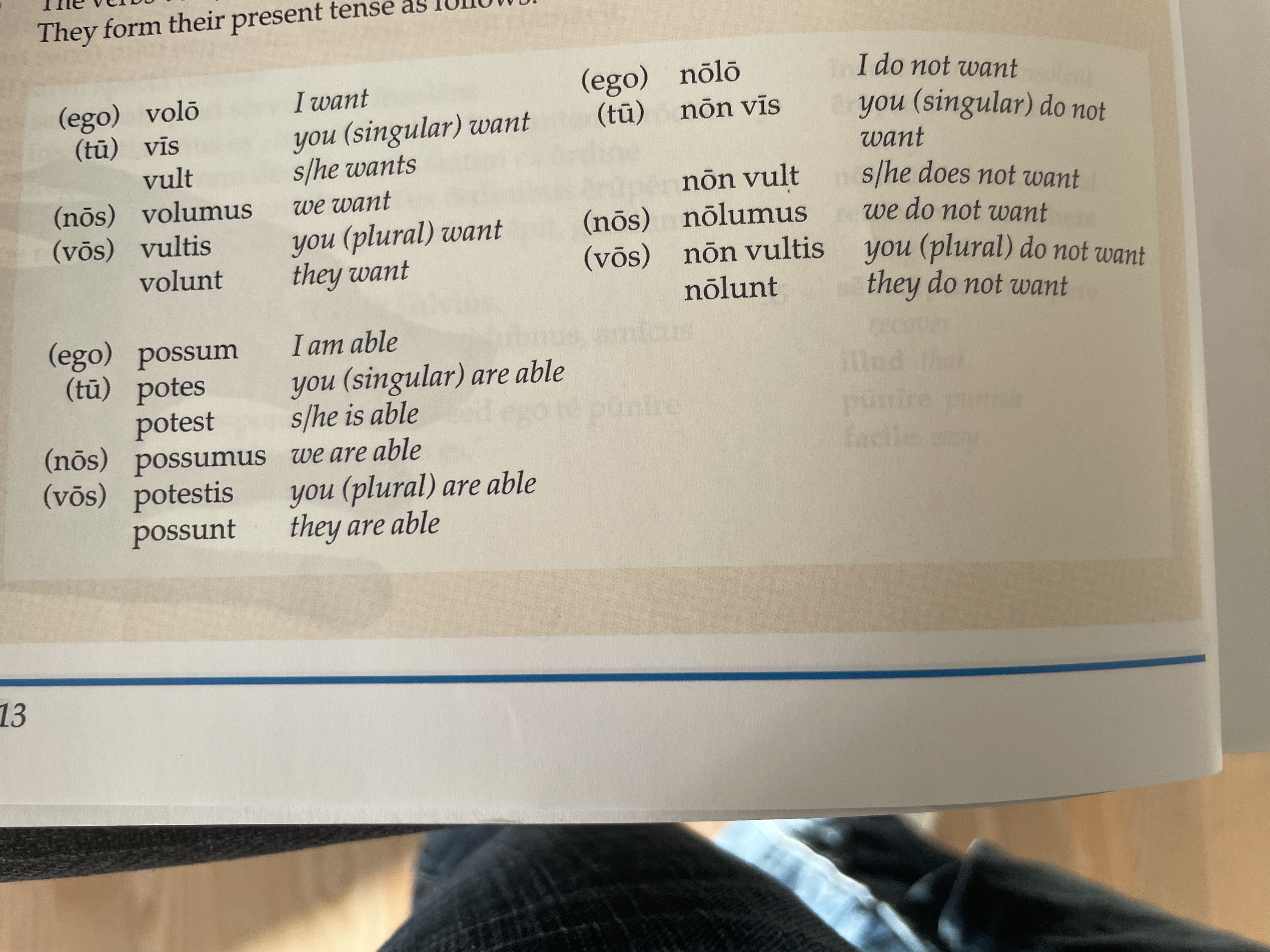What are the conjugations of the Latin verbs 'posse' and 'velle' and their meanings?

Understand the Problem
The question is referring to the conjugation of Latin verbs related to ability and desire, specifically the verbs 'posse' (to be able) and 'vult' (to want). It is likely asking for an explanation or translation of these verbs.
Answer
Present tense conjugations: possum, potes, potest, possumus, potestis, possunt; volo, vis, vult, volumus, vultis, volunt.
The final answer is that the conjugations for 'posse' (to be able) and 'velle' (to want) in the present tense are as follows: For 'posse': possum (I am able), potes (you are able), potest (he/she/it is able), possumus (we are able), potestis (you all are able), possunt (they are able). For 'velle': volo (I want), vis (you want), vult (he/she/it wants), volumus (we want), vultis (you all want), volunt (they want).
Answer for screen readers
The final answer is that the conjugations for 'posse' (to be able) and 'velle' (to want) in the present tense are as follows: For 'posse': possum (I am able), potes (you are able), potest (he/she/it is able), possumus (we are able), potestis (you all are able), possunt (they are able). For 'velle': volo (I want), vis (you want), vult (he/she/it wants), volumus (we want), vultis (you all want), volunt (they want).
More Information
The verbs 'posse' and 'velle' are irregular in Latin, and their conjugations do not follow the standard patterns of the four main conjugations.
Tips
One common mistake is confusing the forms of these irregular verbs with regular conjugations. Pay special attention to their unique endings.
Sources
- Irregular Verbs: Volo, Nolo, and Malo - LatinTutorial - latintutorial.com
- Verbs - Latin - The National Archives - nationalarchives.gov.uk
- The Latin Dictionary - Wikidot - latindictionary.wikidot.com